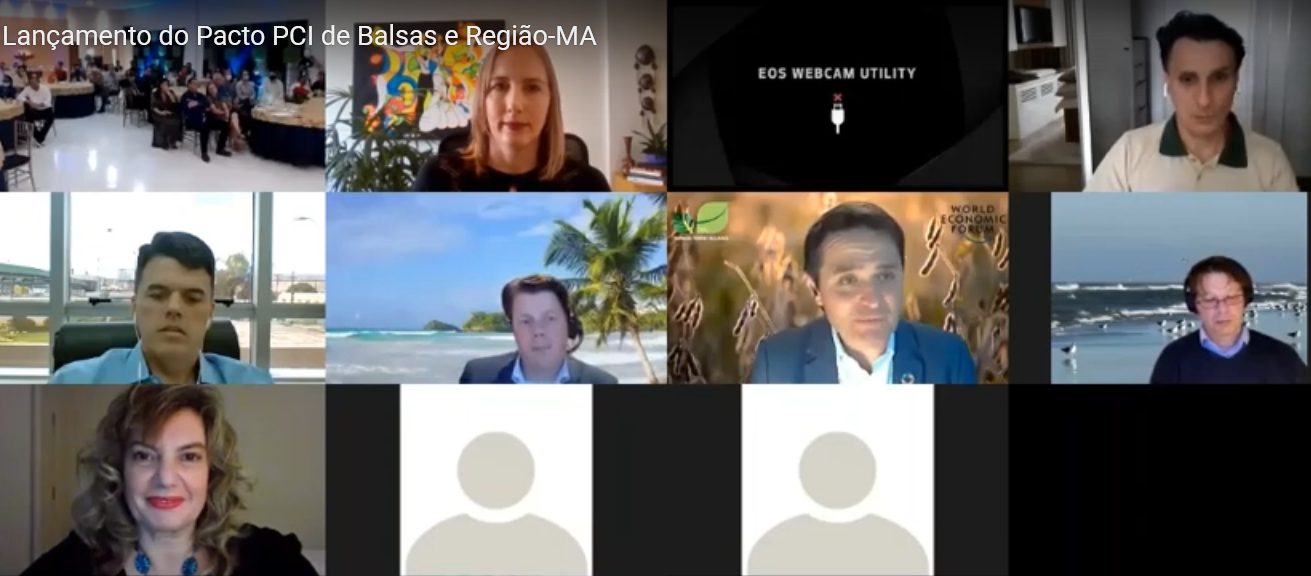A public-private coalition of over 50 partners has signed an agreement to collectively manage long-term sustainable development in the region of Balsas (Maranhão), in Matopiba, Brazil’s biggest agricultural frontier. The coalition has committed to actions to end illegal deforestation in the region by 2025 and to transition to sustainable methods of agricultural production.
The agreement includes 12 municipalities that make up the region, as well as farmers, businesses, communities, associations, state government and civil society at an online event on 27 November 2020.

Celso Henrique, Deputy Mayor of Balsas, one of the 12 signatory municipalities, said: “We are raising the bar of agricultural production in our state. We will do our utmost so that all the pillars of sustainability are maintained.”
Maranhão is a powerhouse of grain and fibre production but is Brazil’s second-poorest state. An estimated 20% of residents live in conditions of extreme poverty and lack access to basic services, such as water and sewage. During the event, the quickly growing market demand for traceable soy with no links to illegal deforestation was discussed.
Daan Wensing, CEO of IDH – the Sustainable Trade Initiative, said: “We know that there is much discussion in the markets about produce from the Cerrado. We think that the launch of this Compact sends a strong message to the market that, by working together – producers, governments, civil society and markets – we can chart a new course for the soy trade in the Cerrado: one that balances production, protection and inclusion.”
Eduardo de Carvalho Lago Filho, Itaqui Port, said: “With the recent investments, we have the capacity of 20 tonnes of grain a year. The world needs food, and we can produce it. It is up to us how we do that. I know how dedicated farmers are to obtain certification to preserve the environment. And the benefits should not stay in the hands of the few.”
Koen Höcker, Second Secretary Economic Affairs of Dutch Embassy, said: “IDH has found a way to sustain agricultural production while protecting the natural environment and including communities. Only when all stakeholders small and large are part of the process can real impact be achieved.”
The 12 municipalities included in the agreement cover an area of over 5.6 million hectares: 1.2 million ha of which produces soy, cotton and corn, and 2.2 million of which is native vegetation. The area produces 4 million tonnes of grain per year.
Production, conservation and inclusion goals
The highest number of targets in the compact are related to social inclusion. This will include support for the development of family farming production chains, strengthening and expansion of technical assistance programmes, tourism incentives and land regularization, including strengthening the ‘CAR’ environmental registry system.
The compact aims to eliminate all illegal deforestation in the Balsas region and cut fires by 50% by 2025. ‘No till’ practices are planned to conserve soil. The compact will also ensure enforcement of the Forest Code, improve sustainable use of water and introduce initiatives for payment for environmental services.
The compact also aims to increase the production of RTRS certified soybeans by 50% by 2025, and also increasing the area of soybean with the Soja Plus seal by up to 300,000 hectares, increase production of sustainable cotton and to promote a crop-livestock-forest integration system. The agreement also foresees the production of fruit, vegetables, and local handicrafts.
The involvement of companies and farmers is considered a key factor for achieving these goals. The Brazilian Association of Vegetable Oil Industries (Abiove) is one of the organizations integrating the Balsas and Region Compact. André Nassar, president of the entity, stressed the importance of the strategy as a way of encouraging production and attracting investments to the territory.
The local development of the Balsas Region PCI Compact is led by FAPCEN, which received funding from IDH – the Sustainable Trade Initiative. The next steps will be to structure the steering committee of the Compact and implement a monitoring system for its goals and targets, as well as the construction of projects and co-financing programs that support these objectives. “The Compact is a living process, which can receive new memberships and investments at any given time,” the organisations emphasised at the end of the launch event.
The Compact aims to follow the SourceUp model to improve its sustainability level and eventually attain recognition as a ‘Verified Sourcing Area’.
Eduardo de Carvalho Lago Filho, Itaqui port said: “Maranhão wants to have the seal of a responsible and sustainable ag supply chain.”